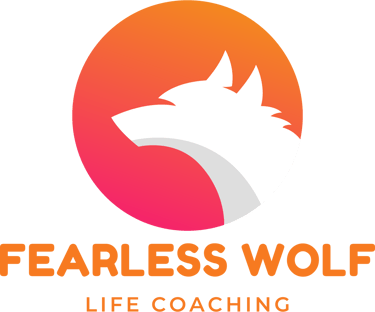How to Do a Year Reflection with Practical Application
A year reflection is a process of looking back at the past year and evaluating your performance, progress, and satisfaction in different aspects of your life, such as your work, your health, your relationships, your hobbies, etc. It can help you learn from your experiences, celebrate your achievements, identify your challenges, and plan for your future.
LIFE COACHING


Introduction
A year reflection is a valuable practice that allows you to take a step back and evaluate your performance, progress, and satisfaction in various areas of your life. By reflecting on the past year, you can gain insights into your experiences, celebrate your achievements, identify areas for improvement, and set goals for the future. In this blog post, we will explore the process of year reflection and provide practical tips for its application.
Step 1: Create a Safe and Comfortable Space
Before you begin your year reflection, it's important to create a safe and comfortable space where you can focus and be honest with yourself. Find a quiet place where you won't be interrupted, gather any materials you may need (such as a journal, pen, and calendar), and set aside dedicated time for this process.
Step 2: Review Your Goals and Intentions
Start your year reflection by reviewing the goals and intentions you set at the beginning of the year. Take note of the progress you made towards these goals and whether or not you achieved them. Reflect on the reasons behind your successes or any obstacles you encountered along the way.
Step 3: Evaluate Different Areas of Your Life
Next, evaluate different aspects of your life, such as your work, health, relationships, hobbies, personal growth, and any other areas that are important to you. Ask yourself questions like:
- How satisfied am I with my work performance?
- Am I taking care of my physical and mental health?
- How are my relationships with family and friends?
- Am I dedicating enough time to my hobbies and personal interests?
Be honest with yourself and take note of both the positive and negative aspects of each area. This evaluation will help you identify areas for improvement and potential goals for the upcoming year.
Step 4: Celebrate Your Achievements
Take the time to celebrate your achievements from the past year. Acknowledge the progress you made, no matter how big or small. Celebrating your achievements boosts your confidence and motivation, and it reminds you of your capabilities.
Step 5: Identify Challenges and Lessons Learned
Reflect on the challenges you faced throughout the year and the lessons you learned from them. Every challenge presents an opportunity for growth and learning. By identifying these challenges and lessons, you can better prepare yourself for future obstacles and find ways to overcome them.
Step 6: Set Goals for the Future
Based on your year reflection, set goals for the upcoming year. Make sure your goals are specific, measurable, attainable, relevant, and time-bound (SMART goals). Break them down into smaller, actionable steps to increase your chances of success. Consider the areas of your life you evaluated earlier and set goals that align with your values and aspirations.
Step 7: Create an Action Plan
To ensure you stay on track with your goals, create an action plan. Determine the steps you need to take to achieve each goal and set deadlines for yourself. Break down your goals into monthly, weekly, and daily tasks to make them more manageable and less overwhelming.
Step 8: Continuously Reflect and Adjust
Year reflection shouldn't be a one-time event. Make it a habit to reflect on your progress regularly throughout the year. Adjust your goals and action plan as needed, and be open to making changes. Remember that reflection is a dynamic process that allows you to adapt and grow.
Conclusion
Year reflection is a powerful practice that can provide valuable insights into your life and help you plan for the future. By creating a safe and comfortable space, reviewing your goals, evaluating different areas of your life, celebrating achievements, identifying challenges, setting goals, creating an action plan, and continuously reflecting and adjusting, you can make the most out of your year reflection process. Embrace this opportunity to learn from your experiences, celebrate your achievements, and pave the way for a fulfilling future.
